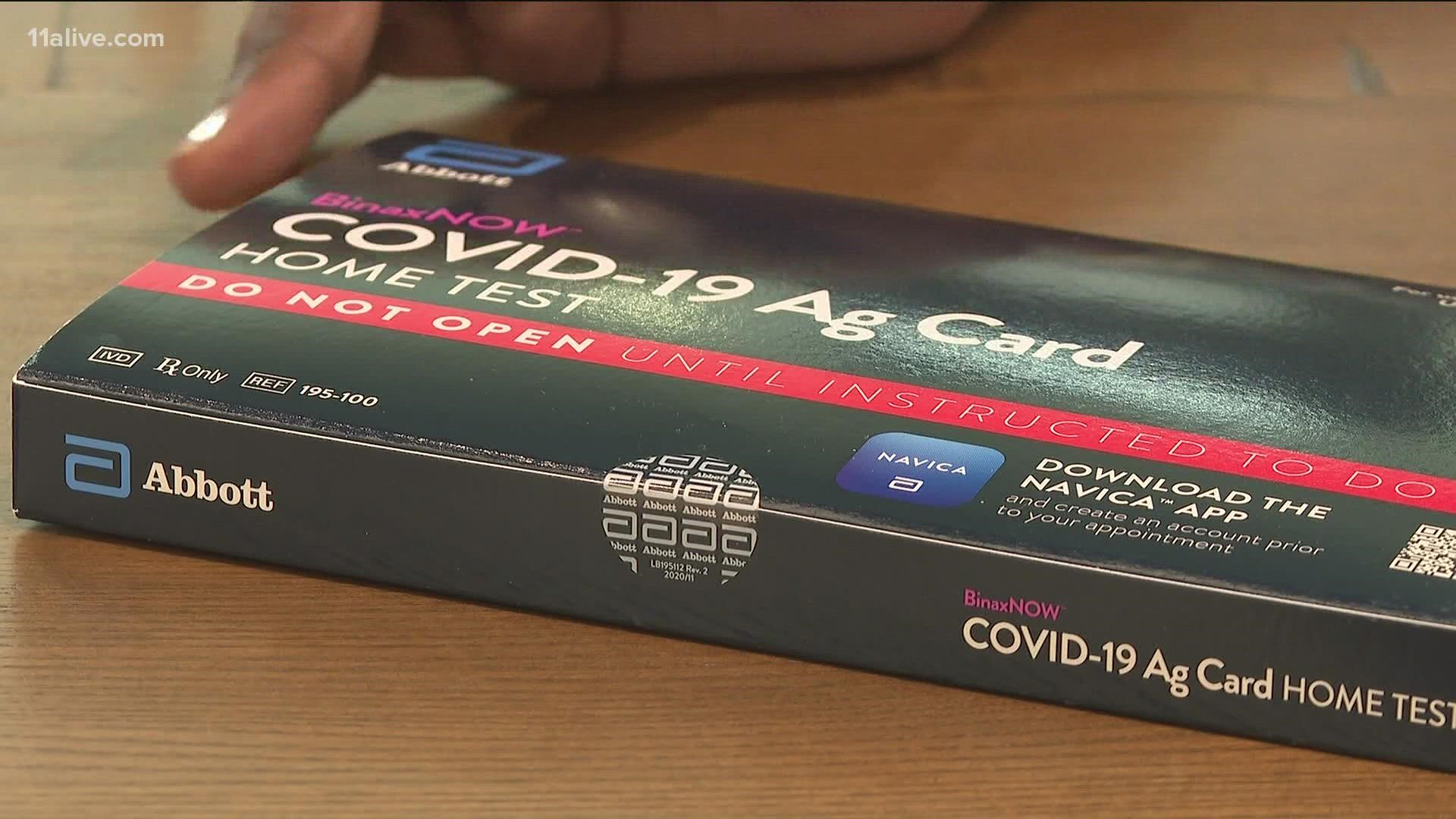ATLANTA — Online, in pharmacies, and at retail stores, COVID-19 at-home test kits can be hard to find as they're often sold out.
For people who do find one, their positive or negative test result won't be reflected in the Georgia Department of Public Health's COVID-19 data.
DPH has been tracking COVID-19 cases throughout the pandemic. That data is often what public health and elected officials use to make decisions.
"I sat there in my car in the parking lot of one of the Walgreens and just started calling. Calling various CVS stores, calling various Walgreens to try and find one," Ashlie Wagner of Woodstock said.
Wagner recently tried tracking down an at-home COVID-19 test kit for her daughter who was exposed to someone at school who tested positive for the virus.
Days later over the weekend, her daughter began to show symptoms of the virus, including a fever and fatigue.
What Wagner initially found were empty store shelves. Over the phone, pharmacists told her they didn't have any tests in stock. She finally found a local pharmacy with a total of four kits left on their shelves.
Her daughter tested negative. That following Monday, they waited in a lengthy line for an in-person test to verify the at-home test.
"At least for us it showed they're somewhat reliable if not pretty reliable because after we had the professional COVID test done, my daughter still tested negative," Wagner said.
While at-home tests are popular and in demand, a Georgia DPH spokesperson said at-home test results are considered "suspect," and therefore not included in statewide testing results.
"Individuals should receive confirmatory testing by a doctor, lab or public health if they test positive on a home test," said Nancy Nydam, of DPH. "All at-home tests are considered 'suspect' cases and not 'confirmed' or 'probable,' so they would not appear in our dashboard numbers without further confirmation."
For anyone who tests positive at home, DeKalb County Board of Health Director Sandra Valenciano recommended taking specific steps, which includes staying away from other people and pets. Valenciano also said not to share household items.
"You want to make sure you isolate for 10 days from the day that your symptoms started or from the day of your test result if you don't have any symptoms," Valenciano said.
Second, she recommended letting your doctor or local health office know of your test results.
"We do provide them with guidance," she said. "It is always good to have a confirmatory test as well that is the gold standard -- the PCR test -- and it is tough when you don't have those official test results that say you're positive."
Third, Valenciano said it is important to inform everyone you have been in contact with up to two days before taking your test.
"I think a really key piece is making sure you did the test correctly," Valenciano said. "That you followed the directions on the test because there could be a case where you might be a false negative."
Anyone who has tested negative at home, but still has concerns or symptoms should also call a doctor or local health office.
The CDC provides detailed directions on how to collect a specimen for testing. The directions note people should follow the directions included with the test kit. They should also only use materials included with the kit and should use kits from their health care provider, a testing center, pharmacy, or retail store.
Valenciano said it is recommended for anyone having severe symptoms to seek medical attention instead of locating an at-home test.

